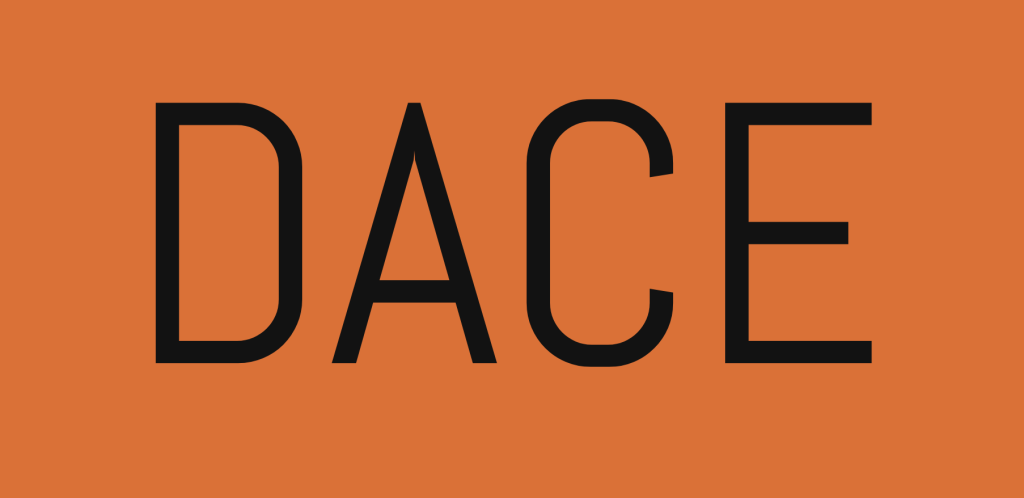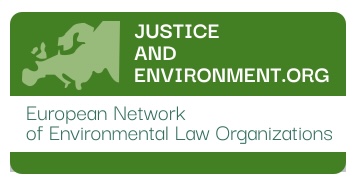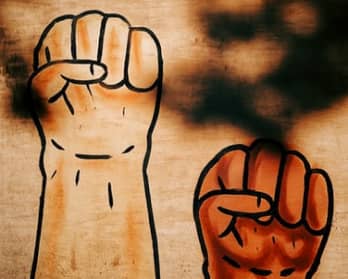
DACE [ongoing]
Six environmental legal NGOs from Austria, Bulgaria, Estonia, Hungary, Slovenia, and Spain joined forces under the umbrella organisation Justice and Environment (J&E) to focus on climate issues and law.
They selected climate change adaptation and climate rights.
The project is called DACE:
Discussions and Actions on Climate and Environment
The objective is to raise awareness of EU citizens about climate change policies and law, e.g., on adaptation to climate change (but also leaving room for mitigation) and citizens’ climate rights. The project supports the climate goals of the European Green Deal and the EU Strategy on Adaptation to Climate Change.
The method to attain this goal is to undertake
a) a collection of public opinion via polling and surveys and interviews in order to uncover the public perception of the issue, and
b) a number of national events, aimed at environmentally conscious citizens, environmental NGOs and other stakeholders (e.g. students, journalists) to discuss climate change adaptation questions and climate rights issues, and
c) a final closing event where beneficiary organisations with the involvement of national stakeholders and the EU Commission share their experience and knowledge and formulate a standpoint and communicate it to EU decision-makers.
The results will be an influence on the EU and thereby on national climate change adaptation policy. The project actions will reach at least 18 thousand EU citizens in the project countries and 10 thousand more in other Member States. Direct participants (appr. 100 per participating Member State) will benefit from being engaged in climate policy shaping. Project outputs will be 6 polling results, 6 legal analyses, 17 national events (and related reports), 1 international event, 1 set of advocacy submissions. Project actions and steps will be properly covered by communication actions both in the national media and in social media, and outputs will be available online, both on the websites of the participating NGOs and of the coordinating Association Justice and Environment.
The project is funded
by the European Union.

The project team consists of the coordinating beneficiary Justice and Environment and 6 other environmental legal NGOs that are all members of J&E.
Association Justice & Environment, z.s.
J&E was established in 2003 during the enlargement process of the European Union. J&E is a European network of environmental law organizations. Currently J&E has 14 member organizations in total from Austria, Bulgaria, Czechia, Croatia, Estonia, Germany, Greece, Hungary, North Macedonia, Poland, Romania, Slovakia, Slovenia, and Spain. All member organizations are either entirely focused on environmental law or it is one of their topic areas. J&E lawyers are seasoned environmental law experts, experienced within their national legal systems, familiar with challenges faced by their respective communities and well aware of the EU legal framework. Its membership base allows J&E to bridge EU and national issues of environmental law and participation. Patterned on this, J&E analyses the EU system of participation in environmental matters, mainly in a form of comparative legal studies and proposes policy improvements / recommendations to decision-makers.
Webpage: www.justiceandenvironment.org
Responsibilities in the project:
J&E acts as a coordinating beneficiary, taking care of the day-to-day management of the project’s activities, including reporting and financial management.
Team of the project:
Csaba Kiss, Coordinator, info@justiceandenvironment.org, phone +361 322 8462
Lubica Mock, Financial Manager, finance@justiceandenvironment.org, phone +420 774 130 730
BlueLink, Bulgaria
BlueLink is a foundation, registered in public interest in Bulgaria with the mission to uphold civil society, democracy, shared European values and environmental sustainability. BlueLink strives to its purpose by supporting internet networking, public interest journalism, policy advocacy and research. BlueLink’s main fields of activity are in:
- maintaining the BlueLink Civic Action Network – a networking, coordination and information exchange hub at www.bluelink.net;
- supporting civil society participation, access to information and justice, and stakeholder engagement through strategic use of internet and other activities;
- operating a virtual newsroom to publish Evromegdan (in Bulgarian) and BlueLink Stories (in English, for Central and Eastern Europe) as e-magazines for ethical journalism in public interest; and
- fostering research and analysis of internet freedom, technological and social change, civil society, democracy and sustainable development, and shaping policies that foster them.
Webpage: https://www.bluelink.net/en
Responsibilities in the project:
- Polling of national public opinion on adaptation to climate change and related climate rights;
- Preparation of a legal study on climate rights and their domestic enforcement;
- Organization of national events related to the previous activities;
- National level communication of the project.
Team of the project:
Pavel Antonov, pavelan@bluelink.net
Plamen Peev, plamen@bluelink.net
Polina Slavcheva, polina@bluelink.net
Environmental Management and Law Association, Hungary
Environmental Management and Law Association (EMLA) is a non-profit non-governmental organization working in environmental law and environmental management on national, European and international levels. The main activities of EMLA are public interest environmental legal advice and litigation, environmental legal research, consulting and education, and carrying out of environmental management projects. EMLA is a founding member of The Access Initiative in addition to being a member of the European Environmental Bureau and the Nuclear Transparency Watch. The EMLA Foundation established by the EMLA Association is active in environmental education.
Webpage: www.emla.hu
Responsibilities in the project:
- Polling of national public opinion on adaptation to climate change and related climate rights;
- Preparation of a legal study on climate rights and their domestic enforcement;
- Organization of national events related to the previous activities;
- National level communication of the project.
Team of the project:
Csaba Kiss, drkiss@emla.hu
Estonian Environmental Law Center, Estonia
Estonian Environmental Law Center (EELC) was founded in 2007 by an environmental NGO Estonian Fund for Nature (ELF) and 3 public interest environmental lawyers. It is an independent expert organization. EELC’s aim is to shape environmental law rules and their application in Estonia in a manner that takes due account of public interests (health and well-being of citizens, biodiversity).
Webpage: www.k6k.ee
Responsibilities in the project:
- Polling of national public opinion on adaptation to climate change and related climate rights;
- Preparation of a legal study on climate rights and their domestic enforcement;
- Organization of national events related to the previous activities;
- National level communication of the project.
Team of the project:
Tarmo Treimann, tarmo@k6k.ee
Instituto Internacional de Derecho y Medio Ambiente, Spain
The law is a fundamental tool in the protection of our the environment. However, in order to guarantee this, it is necessary that its application and use is continually monitored — By not doing so, the destruction of our environment is sure to continue. Thus, over two decades ago, a group of legal and environmental-law professionals formed the International Institute for Law and the Environment to respond directly to this necessity. IIDMA designs and launches its own projects as well as attends to the requests from public and private institutions and organizations requiring support in environmental law and policies.
Webpage: www.iidma.org
Responsibilities in the project:
- Polling of national public opinion on adaptation to climate change and related climate rights;
- Preparation of a legal study on climate rights and their domestic enforcement;
- Organization of national events related to the previous activities;
- National level communication of the project.
Team of the project:
Ana Barreira, ana.barreira@iidma.org
Alba Iranzo, alba.iranzo@iidma.org
PIC, Slovenia
Legal Informational Centre for NGOs is a non-governmental organisation established in 1997. Primary working areas of PIC can be described as legal protection of the environment and human rights (rights of vulnerable groups as disabled, foreigners and asylum seekers, women victims of violence, socially underprivileged individuals etc.). PIC is active on strategic level (through advocacy and lobbying in legislative procedures, civil initiatives etc.) and on operative/implementation level by offering legal counseling and legal support to individuals and NGOs. One of the main activities is providing comments and recommendations during the adoption of important laws and strategic documents in the field of environmental protection and spatial management and proposing systemic changes in particular towards a better inclusion of the public in decision-making processes and improvements of access to effective legal remedies. PIC is striving for a consistent and correct application of the Aarhus Convention, especially regarding effective exercise of the right to participate of NGOs and the wider public in environmental procedures. In this regard PIC is focusing also on influencing court procedures by filing legal remedies and advocating for their effectiveness. PIC is one of thirteen Slovenian NGOs who have obtained a status of a NGO acting in the public interest in environmental matters on national level.
Webpage: https://pic.si/
Responsibilities in the project:
- Polling of national public opinion on adaptation to climate change and related climate rights;
- Preparation of a legal study on climate rights and their domestic enforcement;
- Organization of national events related to the previous activities;
- National level communication of the project.
Team of the project:
Aljosa Petek, aljosa.petek@pic.si
Ökobüro, Austria
OEKOBUERO is the alliance of the Austrian Environmental Movement. It is comprised of 17 Austrian organizations engaged in environmental, nature and animal protection like GLOBAL 2000 (Friends of the Earth Austria), FOUR PAWS, Greenpeace and WWF. OEKOBUERO works on the political and legal level for the interests of the environmental movement.
Webpage: www.oekobuero.at
Responsibilities in the project:
- Polling of national public opinion on adaptation to climate change and related climate rights;
- Preparation of a legal study on climate rights and their domestic enforcement;
- Organization of national events related to the previous activities;
- National level communication of the project.
Team of the project:
Veronika Marhold, veronika.marhold@oekobuero.at
What are climate rights?
The concept of “climate rights” has been introduced by the DACE project to capture a variety of rights and legal mechanisms, i.e., existing and nascent types/classes of rights at international, EU and national level with relevance to climate change, defined as follows:
“all substantive and procedural rights in connection with climate change related matters”.
As an operational definition, its main purpose is to inform our study of climate rights as vehicles for just and engaging society in which climate justice and protection against the consequences of climate change are high on the agenda for the governments, businesses and the society as a whole. This is a broad and overarching definition which could come across political, social and civil society domains and can be used for engagement of key target groups of the project like climate activists, environmental associations, other interested citizens and local communities, but also bar associations, students, journalists.
“Climate rights” in the sense of the DACE project thus does not only include rights in a narrow legal sense, such as human or social rights, but encompasses legal mechanisms that enable individuals and organisations to protect their rights, to demand climate action or hold governments and businesses accountable. Even if we don’t claim coining a new concept of the legal doctrine, we could still test its practical application, and stir a debate about it with national and EU stakeholders.
Read our publication on climate rights.
While testing the application of the concept, we aim to raise the awareness of target groups and general public of climate rights (in general terms or about specific rights related to or affected by climate change: e.g., right to life, health, home, dignity); to test the readiness of target groups to exercise such climate rights already now, or to explore the existing practice of exercising such rights; and to mobilise target groups’ support for introducing a stronger and more comprehensive system of climate rights that could be also defined as rights to climate protection[1].
[1] Kahl. 2022. A human right to climate protection – Necessary protection or human rights proliferation?
What is climate adaptation?
Climate change is here. Beyond doing everything we can to cut emissions and slow the pace of global warming, we must adapt to climate consequences so we can protect ourselves and our communities. The fallout varies depending on where you live. It might mean fires or floods, droughts, hotter or colder days or sea-level rise.
Climate change adaptation is the process of adjusting to current or expected impacts or effects of climate change.[1] For humans, adaptation aims to moderate or avoid harm, and exploit opportunities; for natural systems, humans may intervene to help the adjustment.[1] Adaptation actions can be either incremental (actions where the central aim is to maintain the essence and integrity of a system) or transformative (actions that change the fundamental attributes of a system in response to climate change and its impacts).[2] The need for adaptation varies from place to place, depending on the risk to human or ecological systems. Adaptation actions can be grouped into four categories: Infrastructural and technological; institutional; behavioural and cultural; and nature-based options.[3]: fig. 16.5
Adaptation is especially important in developing countries since those countries are most vulnerable to climate change[4] and are bearing the brunt of the effects of climate change.[5][6] Human adaptive capacity is unevenly distributed across different regions and populations, and developing countries generally have less capacity to adapt.[7] Adaptive capacity is closely linked to social and economic development.[8]
Source: Wikipedia
What actions are we going to implement?
Six environmental legal NGOs from Austria, Bulgaria, Estonia, Hungary, Slovenia, and Spain joined forces under the umbrella organisation Justice and Environment to focus on climate issues and law. They selected climate change adaptation and climate rights. The objective is to raise awareness of EU citizens about climate change policies and law, e.g., on adaptation to climate change (but also leaving room for mitigation) and citizens’ climate rights. The project supports the climate goals of the European Green Deal and the EU Strategy on Adaptation to Climate Change. The method to attain this goal is to undertake
a) a collection of public opinion via polling and surveys and interviews in order to uncover the public perception of the issue, and
b) a number of national events, aimed at environmentally conscious citizens, environmental NGOs and other stakeholders (e.g. students, journalists) to discuss climate change adaptation questions and climate rights issues, and
c) a final closing event where beneficiary organisations with the involvement of national stakeholders and the EU Commission share their experience and knowledge and formulate a standpoint and communicate it to EU decision-makers.
The results will be an influence on the EU and thereby on national climate change adaptation policy. The project actions will reach at least 18 thousand EU citizens in the project countries and 10 thousand more in other Member States. Direct participants (appr. 100 per participating Member State) will benefit from being engaged in climate policy shaping. Project outputs will be 6 polling results, 6 legal analyses, 17 national events (and related reports), 1 international event, 1 set of advocacy submission. Project actions and steps will be properly covered by communication actions both in the national media and in social media, and outputs will be available online, both on the websites of the participating NGOs and of the coordinating Association Justice and Environment.
Where can you meet us?
During the course of the project, partners in Austria, Bulgaria, Estonia, Hungary, Slovenia and Spain will hold a number of events and meetings where you can join us and get insight into our climate change and climate rights related work.
To find out where and when exactly we are having our events, please follow the project partners’ websites where information is published on recent and upcoming meetings.
Also, follow the Facebook and Twitter pages of Justice and Environment to get info on our project’s progress.
Links to the project partners’ related webpages: See the Contacts and Links section below
J&E’s Facebook page: https://www.facebook.com/justiceandenvironment
J&E’s Twitter page: https://twitter.com/justenvinet
What are the results of our actions?
The outputs of our actions are below:
Austria
- Report of the first national climate rights event
- Outputs of the national public poll on climate rights issues
- Report of the second national climate rights event
- Report of the third national climate rights event
- Report of the fourth national climate rights event
- National legal study on climate rights
Bulgaria
- Report of the first national climate rights event
- Report of the second national climate rights event
- Outputs of the national public poll on climate rights issues
- National legal study on climate rights
- Report of the third national climate rights event
Estonia
- Report of the first national climate rights event
- Report of the second national climate rights event
- Outputs of the national public poll on climate rights issues
- National legal study on climate rights
- Report of the third national climate rights event
- Report of the fourth national climate rights event
Hungary
- Report of the first national climate rights event
- Outputs of the national public poll on climate rights issues
- National legal study on climate rights
- Report of the second national climate rights event
Slovenia
- Report of the first national climate rights event
- Report of the second national climate rights event
- Outputs of the national public poll on climate rights issues
- Report of the third national climate rights event
- Report of the fourth national climate rights event
- National legal study on climate rights
Spain
Coordinating beneficiary:
Csaba Kiss, Project Manager, info@justiceandenvironment.org
Communications and media relations:
Pavel Antonov, Communications, pavelan@bluelink.net
Links to the project partners’ related webpages:
Bulgaria: https://www.bluelink.net/en/discussions-actions-climate-environment.html
Estonia: http://k6k.ee/k6k/k6k/projektid/kliima
Hungary: https://emla.hu/dace-projekt/
Slovenia: https://pic.si/dace/
Content coming soon

